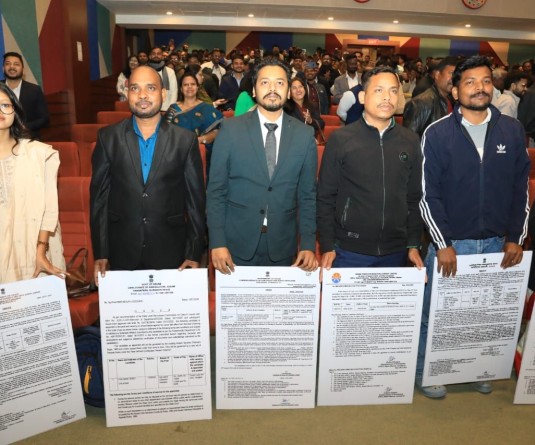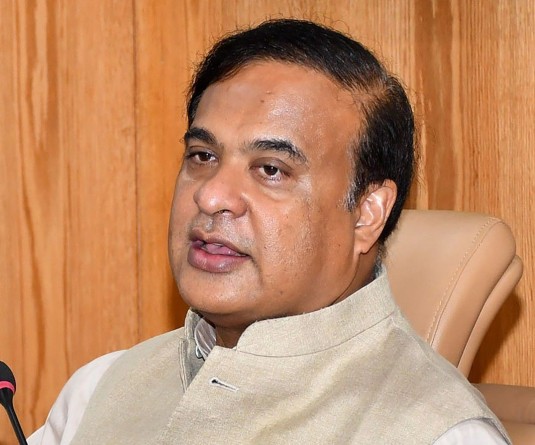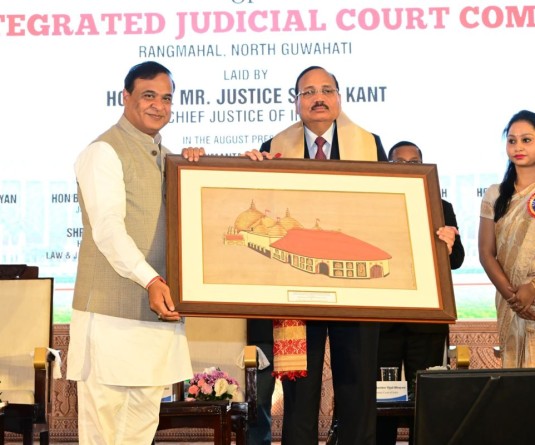
Dimapur, March 24 (MExN): Participating in the Debate on Governor’s Address former Nagaland Pradesh Congress Committee (NPCC) President KV Pusa said a “peaceful atmosphere” alone does not guarantee long-term security, a prerequisite for all round development. The Congress MLA said that the efforts of all governmental and non-governmental agencies and organizations working for unity and reconciliation is ‘appreciable.’ But he strongly reminded that a permanent settlement of the issues ‘relating to factors that are creating divisions in our society’ will require long term solutions. He said the assurance would not come if the government fails to identify its place and role in the matter and shifting its responsibility on the shoulders of NGOs and tribal ‘hohos’ alone.
Pusa said the role played by the Forum for Naga Reconciliation may have been effective for now but in the long run the sustaining of its efforts would depend on government policies. He insisted that government should go much beyond extending support and commitment to facilitate the peace process. It is the responsibility of the government to make policies that are conducive to peace and to run its administrative organs effectively for the maintenance of peace the Congress lawmaker said.
On development, KV Pusa opined that the inequitable distribution and development reflects the failure of the government machinery in recognizing the grievances and needs of the backward areas. ‘If we want to retain the unity of our small political family it is imperative that the government immediately take up remedial measures to address the grievances of the eastern Nagas,’ Pusa said.
He said the approach of the government should not be to appease backward areas with SOPs alone but developmental projects that challenge the people of those areas; recognize their talents and local resources taken up. The Congress leader said the purpose of the governments’ action on backward areas should not be to encourage regionalism but way of identification on regional or tribal basis. He advised that the yardstick of economic and developmental should be used in this regard.
On much talked-about Article 371(A), Pusa said it would be wrong to think that it hampers faster economic growth in the state. In fact it empowers lawmakers to decide on the development of Nagaland and its resources, he reminded.
‘As members of a democratically elected assembly we cannot blame the people whom we represent for not being able to exercise our powers in exploring and utilization of our rich natural resources for the good of the people,’ Pusa told the assembly. He stated – ‘In doing so they should maintain balance between economic benefits and the environment consequences which in the long run may have negative impact on the future of Nagaland and its people.’
Pusa said the role played by the Forum for Naga Reconciliation may have been effective for now but in the long run the sustaining of its efforts would depend on government policies. He insisted that government should go much beyond extending support and commitment to facilitate the peace process. It is the responsibility of the government to make policies that are conducive to peace and to run its administrative organs effectively for the maintenance of peace the Congress lawmaker said.
On development, KV Pusa opined that the inequitable distribution and development reflects the failure of the government machinery in recognizing the grievances and needs of the backward areas. ‘If we want to retain the unity of our small political family it is imperative that the government immediately take up remedial measures to address the grievances of the eastern Nagas,’ Pusa said.
He said the approach of the government should not be to appease backward areas with SOPs alone but developmental projects that challenge the people of those areas; recognize their talents and local resources taken up. The Congress leader said the purpose of the governments’ action on backward areas should not be to encourage regionalism but way of identification on regional or tribal basis. He advised that the yardstick of economic and developmental should be used in this regard.
On much talked-about Article 371(A), Pusa said it would be wrong to think that it hampers faster economic growth in the state. In fact it empowers lawmakers to decide on the development of Nagaland and its resources, he reminded.
‘As members of a democratically elected assembly we cannot blame the people whom we represent for not being able to exercise our powers in exploring and utilization of our rich natural resources for the good of the people,’ Pusa told the assembly. He stated – ‘In doing so they should maintain balance between economic benefits and the environment consequences which in the long run may have negative impact on the future of Nagaland and its people.’


.jpg)



